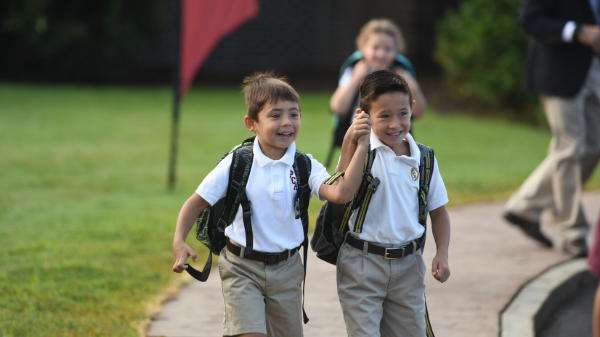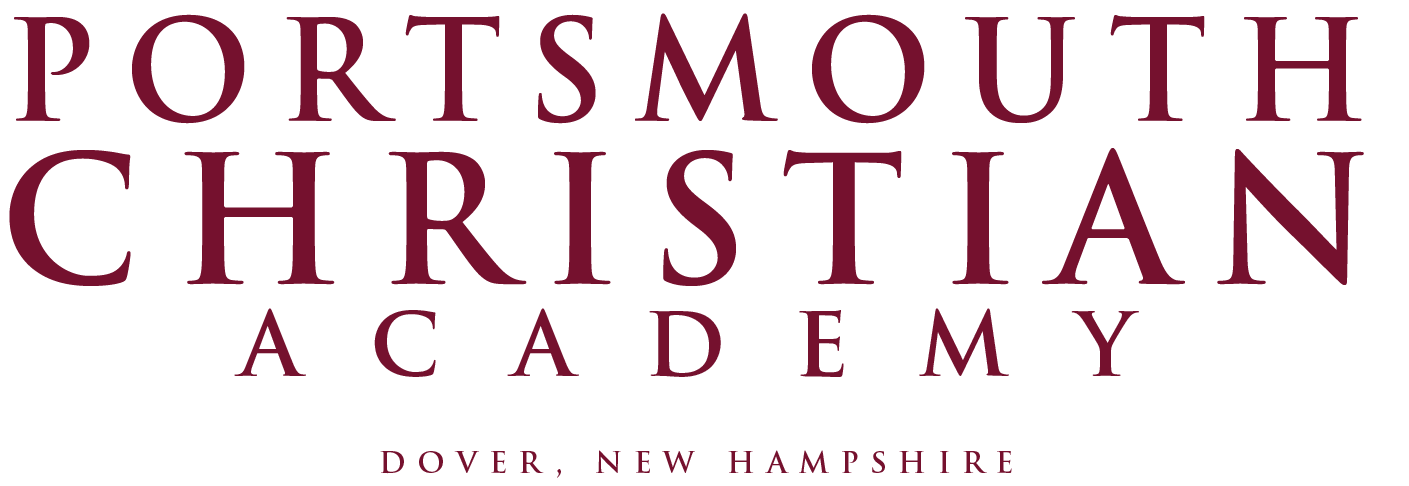Is Your Child Ready for Kindergarten?

Now that your little one has graduated from preschool, you may be wondering what comes next for your preschooler. Whether you’re looking ahead to Kindergarten or seeking a Preschool program that will prepare your child for the next step, the New Hampshire Kindergarten Readiness Indicators may help you understand what you’re looking for during this important time in your child’s development.
The state of New Hampshire defines kindergarten readiness as “children possessing the skills, knowledge and attitudes necessary for success in school and for later learning and life. Kindergarten readiness is a shared collaboration between families, schools, and communities promoting student success.”
Endorsed by the New Hampshire Department of Education, the New Hampshire Kindergarten Readiness Indicators provide educators, parents/caregivers and communities with a common understanding and standard for ensuring that young children are on the path to school success.
NH Kindergarten Readiness Indicators include:
- Language Arts and Literacy
- Cognition and General Knowledge: Logic and Reasoning in Mathematics
- Cognition and General Knowledge: Science and Social Studies
- Approaches to Learning (including Creative Art Expression and Music)
- Social and Emotional Development
- Physical Development and Health
Below are the subcategories reviewed for Kindergarten Readiness:
- Language Arts and Literacy
- Listens and understand increasingly complex language.
- Uses language to express thoughts and needs.
- Uses appropriate conversational and other communication skills.
- Demonstrates knowledge of print concepts and conventions.
- Comprehends and responds to books and other texts.
- Demonstrates phonological awareness.
- Demonstrates knowledge of the alphabet.
- Demonstrates emergent writing skills.
- Cognition and General Knowledge: Logic and Reasoning in Mathematics
- Demonstrates curiosity in approaches to learning.
- Remembers and connects experiences.
- Uses classification skills.
- Uses symbols and images to represent something not present.
- Uses number concepts and operations.
- Explores and describes spatial relationships and shapes.
- Demonstrates knowledge of patterns.
- Compares and measures.
- Cognition and General Knowledge: Science and Social Studies
- Demonstrates scientific inquiry.
- Demonstrates conceptual knowledge of the natural and physical world.
- Comprehends self, family and community (social studies).
- Describes, understand and/or explores geography, history and events.
- Approaches to Learning (including Creative Art Expressions and Music)
- Participates in creative arts expression and music.
- Uses approaches to learning (initiative, curiosity, persistence, attentiveness, intentionality).
- Demonstrates cooperative learning.
- Social and Emotional Development
- Establishes and sustains positive relationships.
- Self: concept, regulation and confidence.
- Physical Development and Health
- Demonstrates health knowledge.
- Demonstrates balance and control.
- Demonstrates fine-motor strength and coordination.
The New Hampshire Kindergarten Readiness Indicators are not a definitive developmental checklist or screening tool. In fact, each school has its own kindergarten readiness assessment.
At PCA, all children in our preschool program are immersed in daily activities that engage all of the facets of the New Hampshire Kindergarten Readiness Indicators. Against this backdrop, PCA preschool and kindergarten programs build from this base to engage children in differentiated learning, self-efficacy (“I can do that!”), spiritual foundation, and an appreciation of the natural surroundings of our 50-acre, riverfront campus.
You have many strong options for preschool and kindergarten in the State of New Hampshire. As you explore these programs for your child, we encourage you to use the above Kindergarten Readiness Indicators as a baseline for evaluation.
If you’d like to see for yourself how PCA’s preschool and kindergarten programs will set your child up for success, please reach out to us to set up a visit: admissions@pcaschool.org or visit pcaschool.org.


